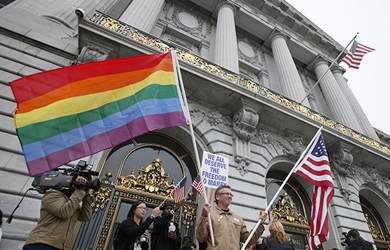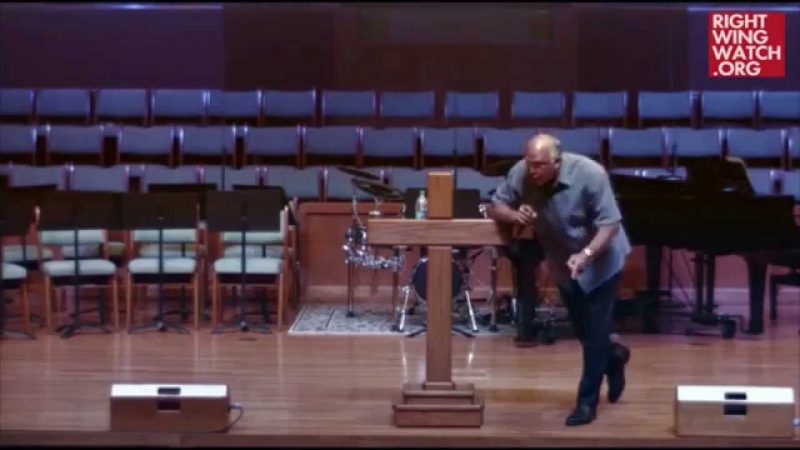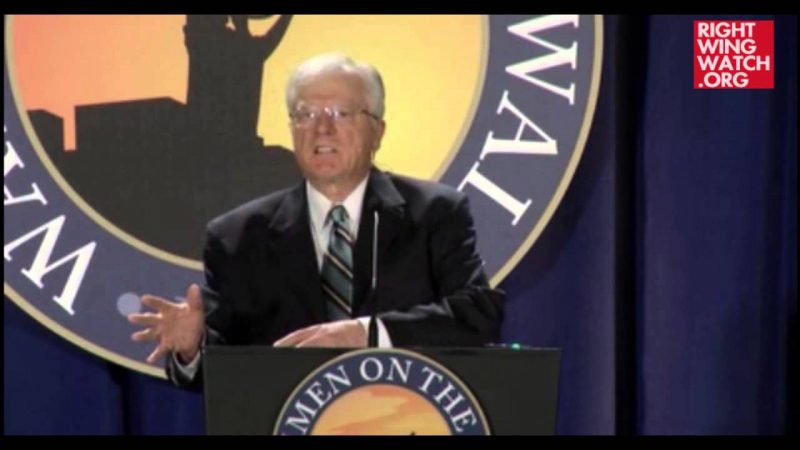Illinois Family Institute “cultural analyst” Laurie Higgins has had quite enough of the American Library Association’s Banned Books Week and the “self-righteous, dissembling librarians” who promote it.
In a blog post for IFI today, Higgins attacks librarians for their “hysteria-fomenting” efforts to prevent the banning of books about families with LGBT parents (or, as Higgins calls them, “children or anthropomorphized animals being raised by parents in homoerotic relationships”).
It is in fact the librarians, Higgins writes, who are censoring books by failing to go out of their way to seek “pro-heteronormativity books,” children’s literature that depicts the “harrowing fights” of “lesbian mothers,” or, even better, “picture books that show the joy a little birdie experiences when after the West Nile virus deaths of her two daddies, she’s finally adopted by a daddy and mommy.”
Self-righteous, dissembling librarians are seeking once again to foment “book-banning” hysteria through their annual dishonest Banned Books Week campaign (Sept. 21-27) sponsored by the self-righteous, dissembling, and politically partisan American Library Association (ALA).
The ALA pursues its hysteria-fomenting goal chiefly by ridiculing parents who, for example, don’t want their six-year-olds seeing books about children or anthropomorphized animals being raised by parents in homoerotic relationships. (Scorn and woe to those parents who hold the now-censored belief that homoeroticism—even homoeroticism presented in whitewashed, water-colored images—doesn’t belong in the picture books section of public libraries).
…
Next year, will the Schaumburg librarians display photos of empty shelves where books that challenge Leftist assumptions about the nature and morality of homosexuality should be (you know, pro-heterosexuality/pro-heteronormativity books)?
Will they ask for young adult (YA) novels about teens who feel sadness and resentment about being intentionally deprived of a mother or father and who seek to find their missing biological parents?
Will they ask for dark, angsty novels about teens who are damaged by the promiscuity of their “gay” “fathers” who hold sexual monogamy in disdain?
Will they ask for novels about young adults who are consumed by a sense of loss and bitterness that their politically correct and foolish parents allowed them during the entirety of their childhood to cross-dress, change their names, and take medication to prevent puberty, thus deforming their bodies?
Will they ask for novels about teens who suffer because of the harrowing fights and serial “marriages” of their lesbian mothers?
Will they ask for picture books that show the joy a little birdie experiences when after the West Nile virus deaths of her two daddies, she’s finally adopted by a daddy and mommy?
Surely, there are some teens and children who will identify with such stories.







